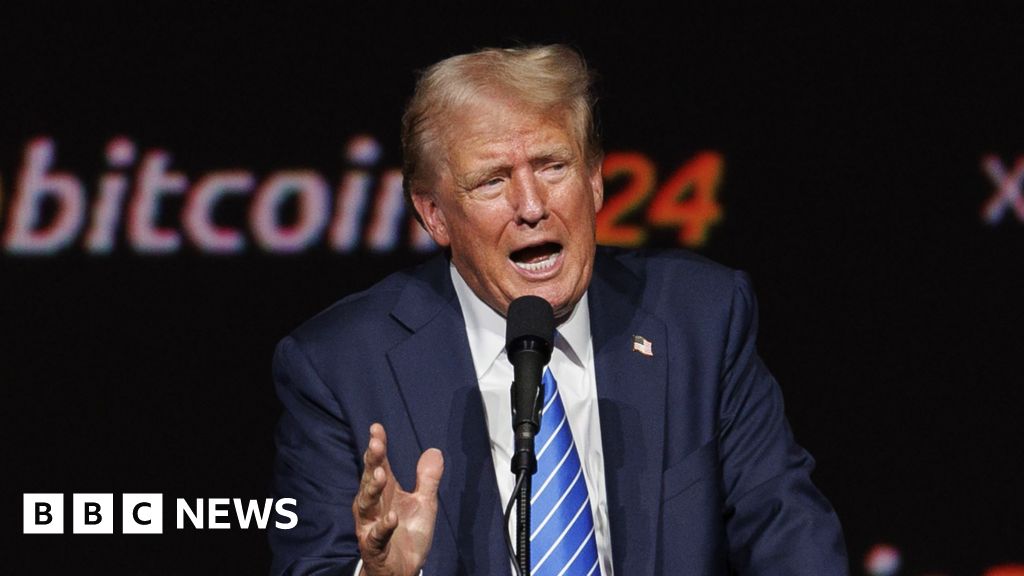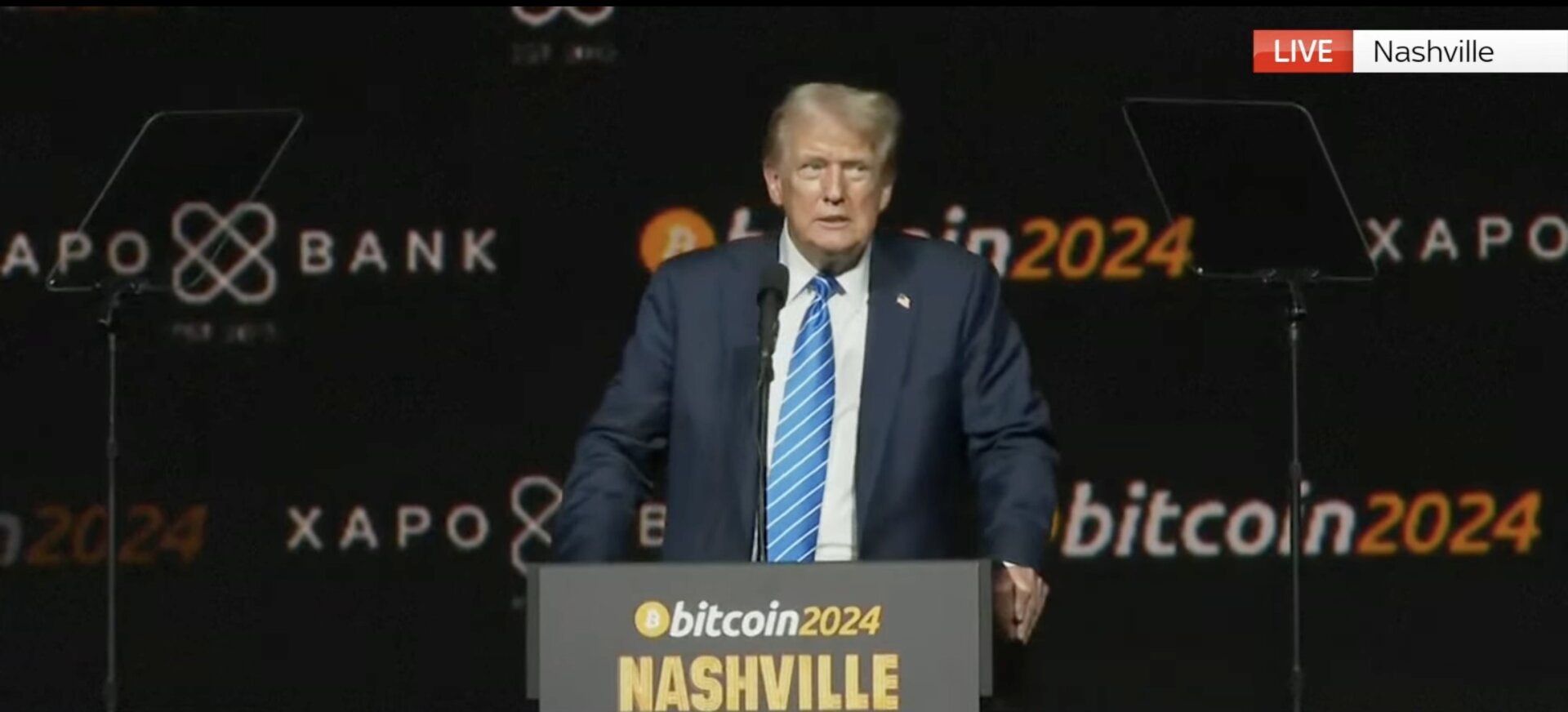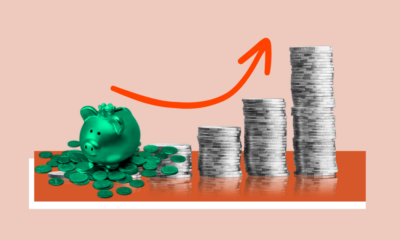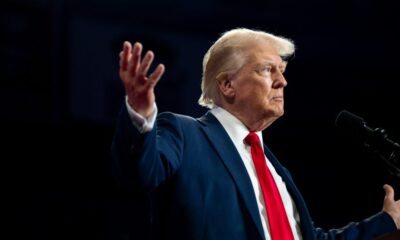Tech
How Crypto Technologies Could Revolutionize Development

How could crypto technologies change the international development sector? The World Bank’s Global Director of Finance, Competitiveness & Innovation, Jean Pesme, discusses how blockchain could revolutionize aspects of economic development from trade to remittances. Also, we explore the promise and the pitfalls of this increasingly popular technology. Listen now this episode of The Development Podcast!
Tell us what you think of our podcast here >>>. We would love to hear from you!
Transcript
[00:00] Paul Blake: Hello and welcome to The Development Podcast, coming to you from the World Bank Group. I’m Paul Blake, alongside Raka Banerjee.
Raka Banerjee: Today, crypto, from trade to remittances, digital currencies to smart contracts, how digital technologies could revolutionize development.
Jean Pesme: It’s actually transforming finance. It’s really a major fundamental change.
Raka Banerjee: We’re picking apart the hope from the hype and analyzing the promises and pitfalls of crypto technologies.
Jean Pesme: I mean, all of us need to be concerned about potential cyber attacks on our banks, because that information is super private.
[01:04] Paul Blake: All of that and more over the next few minutes, but first, let’s go back to some basics on crypto. So, typically we start the show by looking at key data related to that episode’s topic. But, this time, I think we need some key definitions.
Raka Banerjee: Yeah, and there are a lot of them. All of this, from blockchain to cryptocurrency, to smart contracts. What we can broadly call crypto technologies, it’s all new and it’s complicated and it’s developing fast.
Paul Blake: So, let’s try to wrap our head around it, at least broadly, in five minutes or so. Let’s start with the big picture. What exactly is crypto? Is it the same as Bitcoin?
Raka Banerjee: No, it isn’t. So, Bitcoin is just one type of crypto technology, cryptocurrency to be specific. But, there are many other applications of crypto technologies, not just currencies. Let me back up. Crypto, as it is often called colloquially, is basically any technology based on something called the blockchain. The name crypto itself is kind of a misnomer.
Raka Banerjee: It comes from the fact that some of these technologies use similar mathematical formulas as encryption technologies. But that’s a whole ‘nother story. The bottom line is that crypto as we know it has more or less come to mean anything based on blockchain. Maybe a better term for all of this would be blockchain technologies, but that doesn’t sound as cool.
Paul Blake: Right. But, blockchain, what’s that?
Raka Banerjee: This is a bit abstract, but bear with me. Think of blockchain as a database that is decentralized. It’s shared among many different computers. Rather than having one database that’s centrally maintained, maybe by a bank or a government authority or some other trusted third party, this database, it’s spread out across many different computers. Who work together to process and verify transactions.
Paul Blake: Okay. So that is kind of abstract, but I think I’m following. Go on.
Raka Banerjee: Maybe the most well-known use of blockchain technology today is with cryptocurrencies. Blockchain is the technology that underpins cryptocurrencies. Many, if not most people, will have heard of Bitcoin, but that’s just one cryptocurrency and there are many others.
Paul Blake: So, just to make sure I’m understanding, blockchain technology underpins cryptocurrencies, but there are many different types of cryptocurrencies and different types of crypto technologies?
Raka Banerjee: Yeah, exactly. I said it was complicated, right? Most of the cryptocurrencies you’ve heard of like Bitcoin or Ethereum, I don’t even know how to pronounce them honestly, Dogecoin, are public coins. They’re a little bit like when you go to an arcade and trade dollars for tokens to insert into the games.
Raka Banerjee: Those tokens, like these coins, are not issued by a government and they’re not backed by the full faith and credit of a government. So, one big problem with these cryptocurrencies is volatility. They’re risky, they’re new and markets aren’t sure how to value them. We’re seeing these big price swings and the desire to avoid this high level of risk has led to the creation of stablecoins.
Raka Banerjee: These are not issued by a government, but their value is linked to a government-backed currency or a basket of assets. One other interesting type is called Central Bank Digital Currencies, or CBDCs. In short, these are cryptocurrencies issued by central banks with the full faith and credit of the associated government. You can think of them like dollars or euros or yen or whatever, but with blockchain technology underpinning them.
Paul Blake: These CBDCs, are they real? Are they out there in the wild and why don’t I have any?
Raka Banerjee: Not really. They’re mostly in the research and development phase right now. According to the Atlantic Council, which is tracking CBDCs in the wild, as of mid-December, only nine countries have issued CBDCs.
Raka Banerjee: Interestingly, they found early uptake in the Caribbean, with eight of the nine countries that have launched CBDCs are located there. But, many central banks across the world are currently exploring or looking into CBDCs, including the U.S. Federal Reserve, the European Central Bank, the Kenyan Central Bank, the Brazilian Central Bank. Many, many more.
Paul Blake: That’s pretty fascinating. Central banks are looking at how blockchain technologies can be used to improve the efficiency and security of FIAT currencies that they’re already managing.
Raka Banerjee: Yeah, exactly.
Paul Blake: But this blockchain tech, it’s my much more than these virtual currencies, right? The crypto technologies, blockchain technologies, it’s bigger than that.
Raka Banerjee: Yeah, definitely. Yes, blockchain is the technology that underpins many different cryptocurrencies. But, it’s also being used for many other things that require transactions to be fast and secure, but also decentralized. Just for one example, you could see it being used for things like smart contracts that facilitate global trade, or other business transactions. Not just payments.
Raka Banerjee: You could also see it used to facilitate cross-border remittance payments. Not necessarily as the currency, but as the technology that secures and guarantees the transaction itself. There’s also the potential for it to be used to improve land registries or even the transparency around tracking aid transfers. A lot of this is still somewhat theoretical, but it’s really interesting.
Paul Blake: Well, crypto tech or blockchain tech, whatever you want to call it, it is really fascinating. It’s clear, it’s so much more than just cryptocurrencies. Thank you so much for this little Blockchain 101.
Raka Banerjee: Let’s get more now on how crypto technologies have the potential to boost international development work.
Paul Blake: Joining us now here in Washington, D.C. Is Jean Pesme, he’s the World Bank’s Global Director for Finance, Competitiveness and Innovation.
[06:41] Raka Banerjee: Jean, thank you so much for being here. Let’s start by trying to separate fact from fiction. There’s a lot of hype around blockchain, but realistically, how do you see it benefiting international development?
Jean Pesme: So, I’m going to focus essentially on the financial sector, but for the financial sector, it’s actually transforming finance. It’s really a major, fundamental change. The example I give very often is, when was the last time my kids used a $20 bill, versus being able to send that money through their cell phone and digital money?
Jean Pesme: That, obviously, from a broader development perspective, blockchain can do much more. We’d have example of trade of things, I think, from a financial sector perspective. It’s really transforming finance, new players, new use of data, being able to much better understand where are the customers.
Jean Pesme: Different way to assess creditors, so it’s really a fundamental change in ways that can provide lots of opportunities. Also, bring new risk. The business that we would have in the financial sector is, how do we manage risk, provide opportunity and make this available for the most excluded and really drive the financial inclusion objective, using the new ways of providing finance?
[07:53] Paul Blake: You mentioned some of the applications there, cross-border payments is another. Remittances is one that pops to mind. It seems like a sector that’s ripe for blockchain disruption. It’s relatively expensive to send money across borders right now. What impact could blockchain technologies have on remittance payments?
Jean Pesme: First, we are going to talk about cross-border remittances. You can have domestic remittances and already, person-to-person payment. I was using the example of using your cell phone to send money instead of having to drive and give cash to someone. Now, cross-border payment is a very complicated business where you have lots of intermediaries.
Jean Pesme: Clearly, there is a potential for disruption there. It’s not going to come tomorrow. There are lots of challenges to be met, but I think this is something that can really change. Let’s get back to the numbers. Cross-border remittances are around $500 billion. This is more than FDI and official development assistance combined. It’s a very huge amount of money-
Paul Blake: And important for development.
Jean Pesme: Very important for development. At the moment, the fees to send money cross border are, on average, 6%. The objective is to reduce that significantly. The less intermediaries you have, the easier it is to do it. The more the costs are going to go down, the more transparency you could have, also, using the data mechanism. Imagine you cut the cost of sending that by two, that means the beneficiary families have more to spend for their basic needs [crosstalk 00:09:19]
Raka Banerjee: Right, you’ve got more money going into their pockets directly, if you’re cutting down on the fees.
Jean Pesme: Exactly. I mean, this is why it’s going to change. When you send $10, if you pay 6% versus 3%, then that’s more for foods, that’s more for education, that’s more for basic services. What we’ve seen also, thanks to COVID, is that remittance is also part of the resilience, ability to absorb shock. The more money they can put aside, the more they will be able to absorb shocks going forward.
[09:38] Raka Banerjee: How far are we right now from bringing down those fees? Is that happening right now?
Jean Pesme: First, this is part of the system of development goals. We’ve seen a decrease in the fees. I mean, I mentioned 6% on average. So, what you need to look at, corridors. What we call remittance corridors and the fees are going down, so there are different reason why they’re going down. One of it is to bring more competition.
Jean Pesme: So, the more players you have, the more competition you have. The more transparency you can also have. That’s where the digital comes in, because one of the fundamental change brought by digital finance is the ability to bring in new players. Again, an example. A couple of years ago, the only way you could send remittance was through your banks.
Jean Pesme: If, now, you can go to other service provider, then there will be more competition. Therefore, you will bring the cost down. The other part is more transparency, because when you know that if you go to one place versus the other, it’s going to cost you less. Then, you will go to towards where you have the most benefit.
Jean Pesme: This is where digital can also provide more incentive and facilitate, somehow, the competition from the customer perspective. Then, one of the element that you see on cross-border payment is integrity.
Jean Pesme: We make up that concern on anonymity with the crypto assets, but they also benefit in the sense that you can trace the flow of money much more easily. Because it’s registered somewhere, there is more integrity to the data. As everything in finance, you have a plus and you have minus. Part of it is maximize the plus and managing the risk related to the minus.
[11:14] Raka Banerjee: Got it. Another area that could potentially benefit from blockchain technologies is trade, right? Could you talk a little bit about the trade challenges that blockchain could help with?
Jean Pesme: When we think about merchandise trade, we tend to think about the physical movement of container. We see at the moment, with all the supply chain discussion, that’s actually pretty complicated. But, there is also a flow of information and underlying payment. When you look at custom clearance, the number of stakeholders that are to come together so that there can be proper and effective custom clearance.
Jean Pesme: You have 20 to 30 different parties, 200 bits of data. I don’t know, many documents, more than 40. The benefit of digital is that you can bring all of this together in one place and facilitate the exchange of information. Sometimes, people are able to directly access the information. A lot of work has been done to automate the flow of information for trade, but essentially, the centralized solution have been at the port level, or one single window. That’s what we call single-window for the ports.
Jean Pesme: Now, the next element is [inaudible 00:12:16] of information between countries. Because the easiest it is to facilitate that extent of information and the integrity of the Information. That’s where blockchain and data ledgers come in. You know the information is there, you know that it cannot be changed easily and there is control on who has access.
Jean Pesme: Then, you can have elements of trade documentation and the portfolio about the trade that makes it much easier to do custom declaration and custom clearance. We need to get to that next level and everybody working on that. But, that’s a very interesting example of the potential to use digital, to really facilitate cross-border trade and with the level of security and integrity that can really make a big difference.
[12:49] Paul Blake: I want to talk to you about cryptocurrencies. Interest in them has obviously exploded here in the last few years. You can hardly turn on the business news in the morning without hearing about them. Yet, I can’t go down to the cafe and buy a coffee very easily with them. How do cryptocurrencies factor into international development?
Jean Pesme: I mean, in most countries, naturally, you can now buy your coffee with your cell phone. Or, you should be able to do that in a way that is much easier than used to be the case a couple of years ago. We’re actually seeing this kind of development also in emerging market and developing economies. That change is coming and at one moment, emerging markets were actually providing more innovation than you may have seen in an advanced economy.
Jean Pesme: I think that’s the part, also, where there is such a need and also new providers being able to come into the system that you are seeing this kind of innovation. So, that’s the first element. The second element is that the crypto asset world is actually a pretty complex one. It goes from Bitcoin and it’s been around. At the moment, there are still a lot of debate on what the value added.
Jean Pesme: Is it more a speculative asset, or can it facilitate mechanism of payment? But, there’s a whole element around the more traditional crypto asset, in the sense of decentralized mechanism. You don’t have the intervention of central bank with a risk of speculation and, sometimes, anonymity. Then, you have what we call the stablecoins, which are backed against traditional money. I mean, to simplify.
Jean Pesme: This is really something where you can have the benefit of digital payment and, at the same time, not the risk of the volatility of the asset, which has been one of the major problem with the Bitcoin and equivalent. Some of them are called global schedule coins, which would be, somehow, a source of finance that you can use across the world.
Jean Pesme: A couple of years ago, you may remember Facebook mentioned Libra as a way to do that. In the in between, a lot of discussion are taking place with the regulators on, can it work? But, I think that created the potential to think about that and there is a lot of discussion at the moment on these global stablecoins.
Jean Pesme: Then, you have the current development on what is called Central Bank Digital Currency. Where it’s actually the public sector, the central banks, that then provide the digital money, to simplify. Therefore, that will lose a direct claim on the Central Bank. So, you don’t have private money, but public money. That’s the way, the equivalent of your dollar, but in your cell phone and issued by a central bank.
Jean Pesme: There is a lot of work going on at the moment, with some central bank are being already adopted this and others looking at it. Thinking about it, creating pilots, et cetera. So, the big question is, how can we then mobilize that for cross-border payment and integrate the systems amount?
Jean Pesme: So, you can have Country A with the CBDC, Country B with CBDC. Instead of having to go through the whole system of financial institution and what we call cross-bank and banking relationship, then you can make it [inaudible 00:15:51] directly. At least, that’s the potential going forward and some of the tests at the moment.
Jean Pesme: Imagine, with each intermediary taking their fee in the transaction, if suddenly you can reduce the number and directly transact, you don’t have to wait. It reduces the cost, there is more transparency. Obviously, that’s going to be a bit more complicated than it, but fundamentally, this is the discussion in front of us and what people are looking at and testing as we speak.
[16:05] Raka Banerjee: I want to move a little to climate, which is something that’s really on our minds lately. With the recent COP26, what are the climate implications, if we’re seeing greater uptake of cryptocurrencies?
Jean Pesme: It’s a complicated discussion. I mean, as you know, there is that old discussion on the Bitcoin mining and the fact that it takes a lot of energy. Therefore the net element, in terms of climate impact, is not totally clear. Some partners have said that they’ve actually find a way to reduce the energy footprint, somehow, of Bitcoin or equivalent. So, this is an ongoing debate.
Jean Pesme: At the moment, from what I understand, the jury is still out as to whether it’s possible to do it that way. Now, if you think about it, more digital money generally, so at the moment, in most countries, if you want to open a bank account, you need to go to the bank. You need to take your car, you need to face people. Imagine that you can do that all remotely, without having to travel, without having to take your car or the bus, et cetera.
Jean Pesme: I’m not sure that anyone has actually done the calculation of how it would reduce the carbon footprint, but clearly, there is a potential there to reduce the physical transportation element. As well as all the elements related to keeping this in terms of real-world paper and destruction of that paper, et cetera.
Jean Pesme: We are looking at that at the moment and my colleagues working on payment system are trying to identify whether we can have a kind of assessment of the benefit. But clearly, the ability to go digital and to reduce the physical face-to-face has a benefit in terms of carbon footprint.
Paul Blake: That mining mechanism is the part that brings about the climate footprint. Are there any other pitfalls with using? Did I get that right, or did I get it-
Jean Pesme: You’re right on the Bitcoin, because the production of it, if you’ll go Central Bank Digital Currency, for instance, you don’t have the [inaudible 00:18:14] because you don’t need to mine. It’s just the assurance by the Central Bank of the virtual equivalent of your dollar or Euro or whatever other currency in your pocket. I think that’s less the case, but for the mining of Bitcoin, that’s been one of the element of concern, on the carbon footprint and energy footprint.
[18:18] Paul Blake: Beyond climate change, is there other pitfalls that people should be aware of when it comes to cryptocurrency?
Jean Pesme: There are different elements. One is data. There is a huge potential, because you have more data, more information and therefore, you can have better credit profile of the customers, for instance. You have a couple of fintech companies that are beginning to look at patterns of consumption.
Jean Pesme: Now, people go online and they’re able to fine tune your credit profile thanks to that. That means, potentially, not just through the credit registry, based on your past financial industry, but your broader history. You will be able to fine tune more and probably thanks to that, reduce the cost of finance for some people who don’t have that history.
Jean Pesme: Therefore, you can begin a credit entry in much simpler way, by looking at the rest. The data usage is very fundamental, as you see with what Amazon is doing, to some extent. Now, the flip side of that is that, obviously, you are more exposed. People have more information about you, but there is an element around data governance and using data in ways that can really be beneficial.
Jean Pesme: Linked to that is obviously privacy. I mean, all of us need to be concerned about potential cyber attacks on our banks, because that information is super private. You need to make sure that there is the environment on that. That the last demand is around integrity. The abuse of the financial sector for money laundering or things like that.
Jean Pesme: On the one end, it’s much easier to trace the transaction when you are in the digital world. So, you don’t have people coming with a luggage of cash, et cetera. I mean, that’s also part of the image that we have in mind. Trustability can be better, but sometimes, the identification of who’s behind the transaction in the first place is very complicated.
Jean Pesme: That’s actually part of the discussion on the one end, to make sure that there is that knowledge and that information. At the same time, not creating impediment for people to be able to access. In most countries, people don’t have ID. How you open a transaction account without an ID?
Jean Pesme: We have ways to do that [inaudible 00:20:32] for small transaction, you actually don’t need and make it easier for financial inclusion. When it gets more sophisticated, then you can ask for identification, but then you would benefit, because you have more trustability.
[20:26] Paul Blake: That trustability, that identity. Those issues, I mean, that comes down to the architecture of the different currencies or the different assets?
Jean Pesme: That comes to the architecture of the different assets. CBDC, there are lots of option in terms of design and the way that’s designed. What’s the role of the traditional banking sector? What’s the role of the new service provider? Is fundamental. You need the infrastructure in terms of payment system and open payments system beyond the traditional players.
Jean Pesme: Then, digital ID is going to be absolutely essential. What we see is that, in the countries where there is a development of digital ID, it makes it easier for even the most vulnerable to have access to the financial sector.
[21:06] Raka Banerjee: Just one last question. As somebody who spends a lot of time thinking about these technologies, where do you see the most potential, going forward?
Jean Pesme: First off, in answer to your question, I’m not on the technology side. I know the technology colleagues, including the Innovation Lab colleagues at the World Bank love that, because they see a lot of potential from a technological standpoint. I’m more on the financial sector angle, so what we are seeing is, really, a development of products and ability to transact that are completely different. Are fundamentally transforming the financial system.
Jean Pesme: I think we are just beginning to understand the potential of that, potentially in terms of opportunities, potential in terms of risk. I really think that cross-border payment is the next agenda. The next frontier. There is actually a huge work program that has been announced by the G20 and the Financial Stability Board.
Jean Pesme: So, really, the financial sector community is very mobilized. Lots of potential, lots of opportunities, but this is something on which everybody’s been trying to work for years. We have not yet cracked that nut. Because of what we said earlier on remittances, that could have a major development impact, in addition to facilitate the trade, et cetera. But, from a development perspective, that would really make the difference.
[22:16] Paul Blake: Jean Pesme, thank you so much for taking the time to talk to us about this this afternoon.
Jean Pesme: Thank you very much, and thank you for having me. It’s a pleasure.
Paul Blake: Well, that’s it for this edition of The Development Podcast.
Raka Banerjee: As always, we would love your feedback. If you’d like to get in touch with us, send us an email at thedevelopmentpodcast@worldbank.org.
Paul Blake: Until next time, goodbye.
Raka Banerjee: Goodbye.
ABOUT THE DEVELOPMENT PODCAST
This international development podcast brings together the data, research—and solutions—that can pave the way to a sustainable future. Through conversations focused on revealing the latest data, the best research, and cutting-edge solutions, let hosts Paul Blake and Raka Banerjee introduce you to the folks working to make the world a better place. Don’t miss an episode! Listen and subscribe for free on your favorite platform – Apple Podcasts, Spotify, Google Podcasts, and more! And rate our show! 😉
Tell us what you think of our podcast here >>>. We would love to hear from you!
Tech
The Information Hires Peterson to Cover Tech, Finance, Cryptocurrency

My life is nice
Tech news site The Information has hired Business Insider actress to cover technology, finance and cryptocurrencies.
She was part of Business Insider’s investigative team. She was also previously a corporate technology reporter and a technology deals reporter.
Peterson has been with Business Insider since June 2017 and is based in the San Francisco office.
She previously worked for Folio as an associate editor. She holds a bachelor’s degree from the University of California-Davis and a master’s degree from New York University.
Chris Roush
Chris Roush is the former dean of the School of Communications at Quinnipiac University in Hamden, Connecticut. Previously, he was the Walter E. Hussman Sr. Distinguished Professor of Business Journalism at UNC-Chapel Hill. He is a former business reporter for Bloomberg News, Businessweek, The Atlanta Journal-Constitution, The Tampa Tribune, and the Sarasota Herald-Tribune. He is the author of the leading business journalism textbook, Show Me the Money: Writing Business and Economics Stories for Mass Communication, and of Thinking Things Over, a biography of former Wall Street Journal editor Vermont Royster.
Tech
Trump Courts Crypto Industry Votes, Campaign Donations

About the article
- Author, Brandon Livesay
- Role, BBC News
-
July 27, 2024
Donald Trump said at one of the biggest cryptocurrency events of the year that if he is re-elected president, he will fire the chairman of the U.S. Securities and Exchange Commission (SEC) on his first day.
On Saturday, Trump was the keynote speaker at Bitcoin 2024, a gathering of industry heavyweights in Nashville, Tennessee.
The Republican presidential candidate used the event to woo voters and encourage the tech community to donate to his campaign.
Cryptocurrencies have emerged as a political battleground for Republicans, with Trump saying that the Democratic Party and Vice President Kamala Harris were “against cryptocurrencies.”
The crowd was at its most animated when Trump declared, “On day one, I will fire Gary Gensler,” the SEC chairman appointed by now-President Joe Biden. The crowd applauded loudly and began chanting “Trump” at this statement.
SEC files charges against ‘Cryptocurrency King’ Sam Bankman-Frittosentenced to 25 years for stealing billions of dollars from customers of his cryptocurrency exchange FTX.
Speaking for about 45 minutes, Trump outlined some of his ideas for the industry if he wins the November election. He said he would make the United States the crypto capital of the world. His support for the sector is a 180-degree reversal from his comments in 2021, when he told Fox Business he saw Bitcoin as a “scam” that influence the value of the US dollar.
Trump told the crowd at the event that he would retain 100% of the Bitcoin currently owned or acquired by the U.S. government, adding that it would be a “national stockpile of Bitcoin.”
The former president also said he would “immediately appoint a presidential advisory council on Bitcoin and cryptocurrencies.”
He talked about the power needed to mine cryptocurrencies. “It takes a lot of electricity,” he said, adding that he would build power plants “to do that” and that it would “use fossil fuels.”
In recent months, some tech leaders have seen growing support for Trump’s presidential campaign. Tesla founder Elon Musk, who is the world’s richest person, has backed Trump. And cryptocurrency moguls the Winklevoss twins, who attended his speech on Saturday, have also come out in support.
Trump noted that his campaign accepts cryptocurrency donations, saying that in the two months since allowing cryptocurrency transactions, he has received $25 million (£20 million) in donations. However, he did not say how much of the payments came from cryptocurrency.
Trump used his speech to frame cryptocurrency regulation as a partisan issue, saying the Biden administration was “anti-crypto.”
Several Republican lawmakers also attended Trump’s speech, including Senators Tim Scott and Tommy Tuberville. Former Republican presidential candidate and Trump ally Vivek Ramaswamy was also in attendance.
The event was also attended by independent presidential candidate Robert F Kennedy Jr. and Democratic Party congressmen Wiley Nickel and Ro Khanna.
Earlier, during Bitcoin 2024, Democratic Congressman Nickel said that Kamala Harris was taking a “forward-thinking approach to digital assets and blockchain technology.”
Tech
WazirX Crypto Exchange Hack and Its Bounty Program: What Does It Mean for Crypto Investors in India?

On July 18, India Cryptocurrency exchange WazirX has been hit by a cyber attack which resulted in the loss of over $230 million worth of digital assets from one of its wallets. The exchange responded by suspending regular trading and reporting the incident to Indian authorities and other cryptocurrency exchanges. The company also launched two reward programs for ethical hackers who can help the exchange trace, freeze, and recover stolen funds.
WazirX said there was a cyberattack on a multi-signature wallet operated through a digital asset custodian service known as Liminal. Multi-signature wallets have a built-in security feature that requires multiple parties to sign transactions.
“The impact of the cyberattack is over $230 million on our clients’ digital assets,” WazirX said in a blog post, adding that INR funds were not affected. The company has firmly denied that WazirX itself was hacked and has brushed aside rumors that it was tricked by a phishing attack.
The exchange also noted that it was “certain” that its hardware keys had not been compromised, adding that an external forensic team would be tasked with investigating the matter further.
But Liminal, after completing its investigation, said: “It is clear that the genesis of this hack stems from three devices compromised by WazirX.”
Meanwhile, WazirX founder and CEO Nischal Shetty said that the attack would have been possible only if there were four points of failure in the digital signature process.
Who is behind the cyber attack?
WazirX has not yet disclosed the suspected parties or perpetrators responsible for the hack. However, news reports have emerged that North Korean hackers were responsible for the incident.
On-chain analytics and other information indicate “that this attack was perpetrated by hackers affiliated with North Korea,” blockchain analytics platform Elliptic said.
In response to The Hindu’s questions to WazirX about the North Korean hackers, cryptocurrency exchange WazirX directed us to its blog and said it was working with law enforcement to investigate whether a known malicious group was behind the attack.
“This incident affected the Ethereum multisig wallet, which consists of ETH and ERC20 tokens. Other blockchain funds are not affected,” WazirX said in its official blog, specifying that approximately 45% (according to preliminary work) of cryptocurrencies were affected by the attack.
The company largely placed the blame on the process of securing Ethereum multisig wallets and said that the vulnerability was not unique to WazirX.
How important is WazirX in the cryptocurrency industry?
WazirX calls itself India’s largest cryptocurrency exchange by volume. As of June 10, it reported total holdings of ₹4,203.88 Crores, or 503.64 million USDT. Tether [USDT] It is a stablecoin, that is, a cryptocurrency pegged to the value of the US dollar, but it is not an official currency of the United States.
When The Hindu tried to access WazirX Public and Real-Time Reserve Proof After the hack, we were greeted with a notice that the page was under maintenance.
WazirX has received both positive and negative reviews in India. The Enforcement Directorate froze the exchange’s assets in 2022, criticizing its operating procedures and lax Know-Your-Customer (KYC) and Anti-Money Laundering (AML) regulations.
“By encouraging obscurity and adopting lax AML norms, it has actively assisted around 16 accused fintech companies in laundering proceeds of crime using the cryptocurrency route. Accordingly, equivalent movable assets amounting to Rs 64.67 Crore in possession of WazirX have been frozen under the PMLA, 2002,” the ED said in a statement.
What will happen to WazirX assets?
It is unlikely that the stolen WazirX assets will be fully recovered anytime soon. This is due to the very nature of cryptocurrency, where assets can be easily mixed, transferred, converted, and sent to anonymous wallets. The chances of asset recovery are even slimmer if it is confirmed that North Korean hackers are behind the incident.
CEO Shetty said on X on July 22 that “small” portions of the stolen funds had been frozen, but declined to provide further details. He added that the majority of the funds had not been moved from the attacker’s wallet.
In recent years, North Korean hackers have stolen billions of dollars in cryptocurrency, aiming to circumvent various financial and economic sanctions.
WazirX is currently working to resume normal operations and has planned to launch an online survey to decide how to resume trading on the platform.
While the Indian exchange has defended its security practices and highlighted the challenges facing the cryptocurrency industry as a whole, savvy crypto traders will be looking for action plans and accountability, rather than emotional reassurance.
What does your rewards program consist of?
WazirX has announced two bounty programs: one to gain more information about stolen funds, and the other to recover them. Both programs are open to everyone except WazirX employees and their immediate family members.
Under the first program, WaxirX will reward up to $10,000 to anyone who can provide the exchange with information that can help freeze the funds. If the bounty hunter is unable to freeze the funds on their own, they should work with WazirX by providing enough evidence to facilitate the process.
But “if the participant fails to freeze and/or does not cooperate with WazirX to facilitate the freezing of funds, then the participant will not be entitled to any rewards,” the exchange said.
The second program, called White Hat Recovery, is aimed at recovering funds. Participants are offered 10% of the amount recovered as a white hat incentive.
“This reward will be paid only after and subject to the successful receipt of the stolen amount by WazirX. The above rewards will be payable in USDT or in the form of recovered funds at the sole discretion of WazirX,” the exchange noted.
The bounty programs are expected to last for the next three months.
This is a Premium article available exclusively to our subscribers. Read over 250 premium articles each month You have exhausted your limit of free articles. Support quality journalism. You have exhausted your limit of free articles. Support quality journalism. X You have read {{data.cm.views}} of {{data.cm.maxViews}} free articles. X This is your last free article.
Tech
Trump Vows to Make US ‘Crypto Capital of the Planet and Bitcoin Superpower’

Speaking to a crowd of supporters at the Bitcoin 2024 Conference in Nashville, Tennessee, former President and Republican candidate Donald Trump said that if elected, he would make the United States the “crypto capital of the planet and a Bitcoin superpower.”
Trump added that he would “appoint a Presidential Advisory Council on Bitcoin and Cryptocurrencies,” which would have 100 days to “design transparent regulatory guidance that will benefit the entire industry.”
Trump has publicly opposed cryptocurrencies until recently. His latest statements serve as a rallying cry for a tech industry that has long called for more flexible regulatory oversight.
Shortly after taking the stage, Trump spent several minutes naming some of the conference attendees, at one point describing Winklevoss Twins Cameron and Tyler as “male role models with big, beautiful brains.” The former president has continued to speak out against electric car mandates and called for more fossil-fuel burning power plants.
Trump also said he would order the United States to withhold all Bitcoin it currently owns “in the future.” The U.S. government reportedly holds billions of dollars in Bitcoin.
About three years ago, Trump called Bitcoin “a fraud“that is “competing against the dollar.” In February 2024, the former president said that establishing a central bank digital currency would represent a “dangerous threat to freedom.” Yet, in May, Trump declared that he was “good with [crypto]“, adding, “if you’re pro-cryptocurrency you’d better vote for Trump.” That same month, he said he would commute with the Silk Road founder Ross Ulbricht’s Sentencingand his campaign said it would accept cryptocurrency donations.
Recent comments from Trump and independent presidential candidate Robert F. Kennedy Jr. have helped make cryptocurrency regulation a major political issue in the 2024 U.S. presidential election. This comes as the SEC intensifies its scrutiny of the cryptocurrency industry. SEC Chairman Gary Gensler, appointed by President Joe Biden, called the activity “full of fraud, scams, bankruptcies and money laundering.” Trump drew applause at the conference after promising to “fire” Gensler. (U.S. presidents have the power to appoint the heads of many federal commissions, including the SEC.)
With Biden out of the raceVice President Kamala Harris’s campaign advisers have He is said to have contacted to cryptocurrency leaders in an effort to “reset” relations with the industry. Harris’s campaign has not yet said whether her stance on the industry differs from Biden’s.
-

 Altcoins12 months ago
Altcoins12 months agoTop Solana-Based Altcoins Stack Up As Market Turns Bullish!
-

 Altcoins12 months ago
Altcoins12 months agoAltcoins Are Severely Undervalued, Awaiting Ethereum Move | Flash News Detail
-

 News12 months ago
News12 months agoAI meme Raboo and crypto newbie ZRO
-

 Altcoins12 months ago
Altcoins12 months agoAltcoins Correct Amid ETH Decline, Grayscale Outflows | Flash News Detail
-

 DeFi12 months ago
DeFi12 months agoIf You Missed BONK and PEPE This Year, This Viral New Crypto Might Be Your Salvation
-

 Tech12 months ago
Tech12 months agoLogan Paul Offers Partial Refund for Failed CryptoZoo Game
-

 News12 months ago
News12 months agoDonald Trump vows to make the US a ‘Bitcoin superpower’ and create a national stockpile of tokens
-

 DeFi12 months ago
DeFi12 months agoIf You Missed BONK and PEPE This Year, This Viral New Crypto Might Be Your Salvation
-

 Tech1 year ago
Tech1 year agoThe Latest Tech News in Crypto and Blockchain
-

 Altcoins12 months ago
Altcoins12 months agoAltcoins set to make new crypto millionaires during summer rally
-

 DeFi1 year ago
DeFi1 year ago🪂EigenLayer Airdrop Claims Go Live
-

 Videos1 year ago
Videos1 year agoLIVE FOMC 🚨 Could be CATASTROPHIC for Altcoins!





